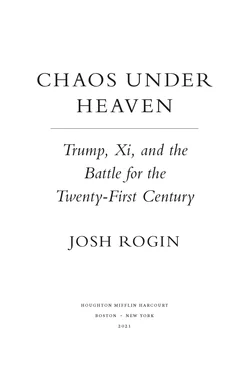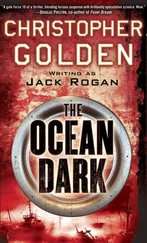Both sides realized that no matter who won the 2020 election, the US-China relationship would be forever changed and the new normal was no longer going to be a relationship based on engagement and “win-win cooperation.” All indications were that the Xi regime would continue its trend of ever-increasing economic aggression, military expansion, internal repression, and interference in democratic societies. The Biden campaign was advertising a China policy that would retain some elements of Trump’s competitive approach. They promised to focus more on multilateral strategies and alliances, and consider getting rid of Trump’s tariffs. But there was no going back to the stance that the Obama administration had taken toward China in 2016, when Susan Rice and John Kerry had attempted to shape the US-China relationship into one where any opportunity for cooperation took priority, and where most uncomfortable issues were swept under the rug.
Inside the Biden campaign, tensions were brewing over China. Some of the old Obama crew who still preferred engagement, such as Obama’s former top Asia adviser, Jeffrey Bader, were still around. Some of the more CCP-skeptic Democrats around Biden, such as Kurt Campbell, formerly Hillary Clinton’s top Asia official, were internally pushing a harder line. But that was a fight that would have to play out if and when Biden actually won.
And even if Bidens most pro-engagement, pro-Beijing advisers ended up with the key jobs, they would not be able to stop the greater awakening to the China challenge that was now well under way in Congress, academia, the tech industry, Wall Street, and the US media. The trends of rising tension, pressure toward decoupling, and politicization of the China issue in Washington were speeding up. The mission of the next administration would be to manage those trends in a way that avoided the outright conflict that neither side wanted.
“As Napoleon warned, don’t rouse a sleeping giant,” said Harvard professor Joseph Nye at the (virtual) Aspen Security Forum in August 2020. “But he was talking about China. We’re talking about the United States.”
Epilogue
On the evening of November 3, 2020, Steve Bannon sat on the rooftop of 101 Constitution Avenue NW, an office building just a quarter of a mile from the United States Capitol. He had erected a makeshift broadcasting set on the roof’s terrace, with the camera positioned so that the Capitol Building was in the background. It was the same rooftop CNN had broadcast from on election night in 2016, but this time the set was adorned with Make America Great Again swag. Bannon was anchoring his own live coverage of election night—the premier event of the year for his War Room: Pandemic YouTube show and podcast, which provided alternative news for the alt-right.
Bannon’s election-night event was also the culmination of a growing, troubling trend of Trump-world figures mixing US politics with Chinese politics. Standing next to Bannon as the show started was Lu De, also known as Wang Dinggang, the corporate lieutenant and propaganda chief for Chinese billionaire fugitive Guo Wengui. Bannon’s War Room: Pandemic franchise was partnered with Guo’s own expansive media enterprise, called the GTV Media Group, which operated a network of websites, including GNews. The GTV Media Group reportedly was under FBI and Securities and Exchange Commission investigation at the time of the election for fund-raising irregularities. Bannon had been a company director of the GTV Media Group until his arrest, and he clearly had no intention of abandoning Guo’s substantial media platform while he was out on bail and awaiting trial on charges of fraud and embezzlement.
Guo claimed to lead a movement called the New Federal State of China, which was dedicated to taking down the Chinese Communist Party (CCP). His movement certainly had followers, fueled by Guo’s media machine and endless supply of cash. And now, that entire organizational apparatus was working with Bannon and the president’s lawyer Rudy Giuliani against Trump’s electoral opponent.
For weeks, GNews and its army of social media accounts had been posting the most salacious content from a trove of documents and videos that appeared to have belonged to Joe Biden’s youngest and only surviving son, Hunter. Bannon and Giuliani had begun releasing the content, which included documents alleging shady deals between Biden family members and several Chinese entities, three weeks before the vote. They said the material was found on a laptop Hunter Biden had abandoned at a Delaware computer repair store run by a mostly blind Trump supporter.
The most salacious material on the laptop—videos of Hunter Biden doing drugs and having sex—were leaked mostly through the GNews website and social media accounts associated with Guo and his “whistleblower movement” Those same social media accounts advertised the cooperation between the Trump team and Guo by posting photos of Guo, Lu De, Bannon, and Giuliani hanging out at Guo’s apartment, smoking cigars. At the top of his election-night broadcast, Bannon actually thanked Lu De for his help spreading the word about “the hard drive from hell” Lu De couldn’t stay long; he was anchoring his own Chinese-language GNews broadcast from a set nearby.
The Hunter Biden material was Bannon and Giuliani’s “October surprise”—their attempt to introduce new information to the presidential contest that would tip the scales toward Trump, as they believed that FBI director James Comey’s revelation about Anthony Weiner’s laptop (and its hard drive containing Hillary Clinton’s emails) had done in the run-up to the 2016 election. But this latest laptop gambit ended up falling flat because most of the mainstream media refused to cover it, still feeling burned after being used as a tool of Russian email hacking and dumping during the 2016 election cycle. What’s more, Giuliani refused to allow most news organizations to view the hard drive, so the content couldn’t be verified. Therefore, although the official story about the laptop’s provenance—its discovery at a Delaware computer repair shop—was full of holes, at the time of this writing no credible alternative explanation has emerged.
In some ways, the laptop release had all the hallmarks of a foreign influence operation. Privately, the Biden campaign never believed the Delaware repair shop story and suspected Russian involvement, but they refused to talk publicly about the laptop for fear of giving the story more oxygen. And anyway, there was no real evidence the Hunter Biden material was the result of foreign hacking, just vague suspicion.
No evidence of foreign hacking—yet here was a foreign billionaire directly involved in the distribution of the materials from the laptop. And not just any foreign billionaire, but one who had been a controversial figure at various points in the Trump administration’s relationship not with Russia but rather with China.
Certainly this was not the Chinese election interference that the Office of the Director of National Intelligence had warned about when it issued a statement on August 7 assessing that “China prefers President Trump—whom Beijing sees as unpredictable—not win re-election.” That statement had focused on interference efforts by the Chinese government that had been fairly overt and appeared to be intended to benefit Biden and hurt Trump: Chinese state-affiliated media organizations had been harshly criticizing the Trump administration and lambasting American democracy as an inferior system, while armies of social media accounts and bots churned out disinformation sometimes aimed at Trump and sometimes designed simply to sow more chaos into the US political discussion.
No—this was interference on behalf of Trump, against the Bidens, performed by a self-proclaimed Chinese dissident. But Guo’s actions in late 2020 indicated that his relationship with the CCP was more complicated than it seemed. Despite being publicly committed to taking down the CCP, his other main project was directly to the benefit of one of the CCP’s main goals: silencing dissidents living inside the United States.
Читать дальше











